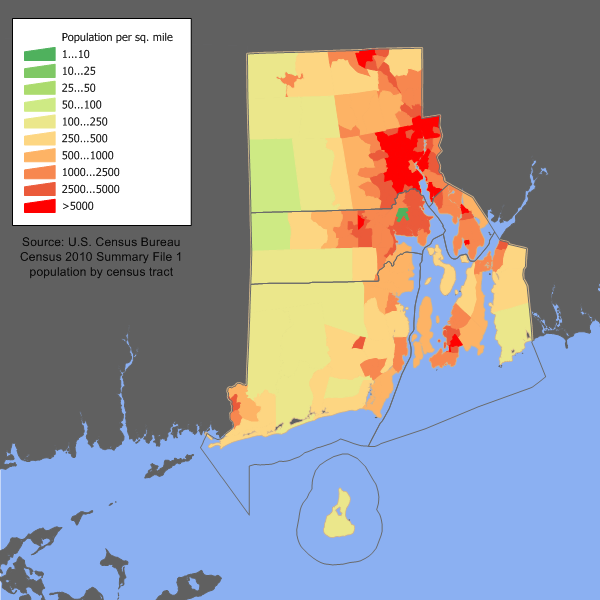The city part is. About half the population lives in the small red area. (Same for North Dakota, most residents live in the ten biggest cities.) Rhode Island is only 12% Republican, so if the 14,287 polling victims were nationally representative, the chart is based on about six Republicans. If they happen to reflect the urban/rural trend in party affiliation, the "in your local area" part of the question will skew the results. I don't think online surveys are very informative. Intuition tells me that Republicans are probably less concerned about the virus in general, both because they are less likely to live in dense cities and perhaps because they are influenced by Republican leaders who express comparatively less concern for the health consequences and more for the economic consequences of halting so much activity. What is the control for this experiment? The survey should ask a lot of unrelated questions, about eye color and blood type and favorite foods. If those questions did not correlate at all with virus concern, it would make correlations in questions about salary or party or age appear more significant. But there would be some weird correlations; people born on Tuesday would be statistically more concerned than those born on Thursday. Our intuition would tell us these are random and meaningless artifacts. Since intuition is the final judge, we don't need the survey. Why include "in your local area" in the question at all? The question only makes sense to measure regional differences in opinion, but all the responses to the survey I see focus on party affiliation.basically a city
